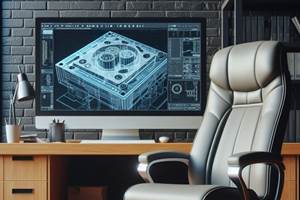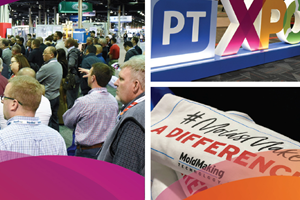What Are Moldmakers Talking About Right Now?
The conversation encompasses smarter, more efficient and automated processes to meet the demands of mold manufacturing.

Mold builders are talking about tried-and-true as well as new technology, both focused on working faster, cutting costs and tackling labor challenges. It’s about innovation and efficiency with mold design, additive manufacturing (AM), automation and data management.
Mold design and engineering are seen as the future of mold manufacturing, so shops are laser-focused on technologies and strategies to boost efficiency and quality. It’s all about streamlining workflows, cutting down on errors and upping productivity. CAD/CAM is a big player here with platforms designed for mold design with the ability to sync up with CNC programming to automate tasks and cut down on manual work.
Data management is another hot topic. Shops are interested in how digital tools can help speed up delivery times and make smarter decisions with real-time data. AI is also making waves, especially in programming, process monitoring and design automation. Shops are already using AI to streamline daily tasks and they’re excited about its potential to boost accuracy and productivity even more.
Digitalization is another area of interest, with folks exploring digital twins, simulation software and digital workflows to tighten up processes and reduce lead time.
3D printing still remains a part of the conversation as well. Everyone’s curious about how it’s changing the game in moldmaking — whether it’s improving hot runner designs, making molding more efficient or helping bridge the skills gap, there’s a lot of excitement around what 3D printing can do.
Automation also continues to get a lot of buzz. In terms of tackling bottlenecks, with shops exploring everything from cobots to quick setup solutions. People want to know how they can use automation to cut costs, boost productivity and stay competitive. There’s a lot of interest in AI and VR in automation, especially in mold design and production.
Of course, machining and EDM are still big. Advanced five-axis techniques, remote monitoring and EDM improvements are popular because everyone’s chasing better precision and efficiency. And the debate between 3+2 and five-axis is ongoing. While five-axis machines save time and handle complex designs, they’re pricey and harder to program. Many still see value in 3+2 setups, especially with efficient workholding solutions.
Advanced toolpath strategies, like trochoidal milling and adaptive clearing are also getting a lot of attention for their ability to improve precision and efficiency. Cutting tools are a mainstay. Everyone’s chasing the latest cutters and coatings that work faster, last longer and handle multiple tasks.
Last but not least, there’s also a shift toward on-machine verification, moving away from traditional CMMs to laser scanning and software that enables more accurate inspections on the machine, minimizing downtime.
These advancements aren't just about doing things faster or more precisely – they're about changing how we approach mold design and manufacturing. Those who can effectively integrate these new technologies will be best positioned to meet the increasing demands for complex, high-precision molds, faster turnaround times, and cost-effective solutions. The next generation of moldmaking is smart, efficient, and more connected than ever before. Are you ready to be part of it?
Related Content
Being "Present in the Moment" is Key to Learning
To truly learn, we need to put away our phones and listen to the person at hand.
Read MoreConfronting the Mold Design Talent Drought
Recently, I reposted on LinkedIn the results of an informal survey we conducted, which revealed a shortage of skilled mold designers. It quickly gained a lot of traction. Given the response, I thought I'd summarize the feedback and keep the conversation going.
Read MoreTackling a Mold Designer Shortage
Survey findings reveal a shortage of skilled mold designers and engineers in the moldmaking community, calling for intervention through educational programs and exploration of training alternatives while seeking input from those who have addressed the issue successfully.
Read MoreMore Than Moldmaking at PTXPO 2023
The Moldmaking Pavilion returns to the Plastics Technology Expo (PTXPO) March 28-30, 2023, at the Donald E. Stephens Convention Center in Rosemont, Illinois, but there’s more to discover than moldmaking.
Read MoreRead Next
How to Use Strategic Planning Tools, Data to Manage the Human Side of Business
Q&A with Marion Wells, MMT EAB member and founder of Human Asset Management.
Read MoreHow to Use Continuing Education to Remain Competitive in Moldmaking
Continued training helps moldmakers make tooling decisions and properly use the latest cutting tool to efficiently machine high-quality molds.
Read MoreReasons to Use Fiber Lasers for Mold Cleaning
Fiber lasers offer a simplicity, speed, control and portability, minimizing mold cleaning risks.
Read More





















